Calgary’s C-Train LRT worsened automobile dependency
- Reality Check
-
SkyTrain for Surrey press team
- April 2, 2012
A recent study that makes a critical analysis of the Calgary LRT system points out well that Calgary’s automobile dependency has not decreased. The study gathers facts and debunks several ideas that LRT supporters point to as ways of making the system successful, when in reality it is not the case. We have quoted similar studies that apply to similar cities with light rail systems such as Portland, Oregon.
Calgary’s system and this study of it interests us in several ways because:
- Calgary is a Canadian city
- Calgary has been operating its C-Train light rail transit system for approximately as much time as Vancouver has been operating the SkyTrain
- The Calgary C-Train has the highest boarding count of any LRT system in North America and has also been regarded as the most cost-effective.
Interestingly, the study says that the C-Train has acted more as a tool for encouraging urban sprawl than preventing it and that it has not decreased automobile dependency. This can be seen with the increasing trend in sprawl-based development patterns on outward areas of the city.
Some past and present Calgary Transit officials have recognized that rather than curtailing sprawl, the CTrain has actually helped drive urban sprawl. By extending rail transit far into the suburbs, the City has made it more convenient for families to locate further away from the core.
In a recent Calgary Herald article, Calgary Transit Planning Manager Neil McKendrick hinted at the CTrain’s role in driving up road costs: “It should allow Calgary to be a more compact city, but what it’s done is it’s actually allowed Calgary to continue to develop outward because it was so easy to get to the LRT and then get other places.”
This may not be a problem in Calgary where a large amount of land has not only been allocated for building so many homes but also for providing adequate infrastructure, including roads. However, Surrey cannot follow the same policies – it does not have the room to easily accommodate additional roads everywhere nor the funding for such levels of increased road expansion, nor is there room in this region to build suburban sprawl.
The C-Train LRT may be doing nothing to address automobile dependency and may be in fact making it worse. It’s important to look at the policies that make this so, in understanding why we need to build SkyTrain in Surrey.
Calgarians love to drive
In Calgary, downtown parking is limited and expensive, which may help to reduce downtown vehicle commutes – however, this was complemented by the introduction of cheap parking at C-Train park-and-rides (once paid, today it is free)[1]. This might be responsible for attracting a lot of LRT riders considering that this option may provide an acceptable level of mobility and travel time for most users.
This concept is called transportation demand management, and is a recognized a way to increase transit mode-share. It doesn’t, however, support the mentality that the primary way of getting around town is by public transit. In Calgary, the established way of getting around is still by car. Many people who ride the C-Train drive first to a park & ride and then make their way.
Studies have pointed out that:
- Calgary spends more money per capita on roads than any other city in Canada (25% higher than Edmonton, the closest rival) [1]
- More than 75% of Calgary commuters-to-work choose to commute by car[2], and:
- Downtown commuters also prefer driving, with more people in Calgary people driving to downtown than in any other city in Canada.[1]
It's not a good example for Surrey
Whereas Calgary has not moved away from following low-density development patterns and a largely car-dominated culture, despite $2 billion of LRT construction; and whereas this LRT system has the highest boarding counts and is regarded to have the highest cost-effectiveness in North America; then surely, this is not a good example for Surrey to follow. This is because the reason the Calgary C-Train has high ridership has more to do with transportation demand management than with the LRT system actually being a decent experience to ride.
And, while it is certainly a goal of rapid transit to prevent congestion (as the Calgary C-Train is competing against full-length driving commutes that would congest roadways into the city core), it would seem like the C-Train’s planning model doesn’t fit with our mandate here in Metro Vancouver and Surrey to establish that the primary way of getting around is by public transit exclusively.
Footnotes
About SkyTrain for Surrey
SkyTrain for Surrey is the community organization that advocated for the Surrey-Langley SkyTrain extension. From our beginnings as a petition calling for the scrapping of a street-level LRT proposal, we grew into a community of like-minded folk, taking on various projects such as making SkyTrain an election issue in 2018 as a registered advocacy group. SkyTrain for Surrey continues to call for high-quality transit infrastructure projects serving Surrey, Delta and the Langleys.
Media Contact:
Daryl Dela Cruz – Founder, SkyTrain for Surrey
Phone: +1 604 329 3529, [email protected]
